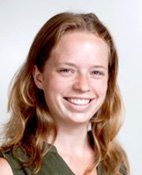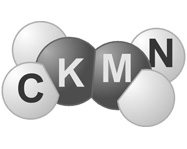Avondlezing door dr.ir. R.M. de Kruijff georganiseerd door de Chemische Kring Midden Nederland.
De lezing wordt voorafgegaan door de Algemene Leden Vergadering (aanvang 19:30 uur).
Samenvatting
Ever since the discovery of radioactivity a little over 100 years ago, it is hard to imagine modern medicine without the use of radionuclides. While it is still the gamma-emitting 99mTc which is the most commonly used medical isotope as diagnostic agent, an increasing number of radiotherapeutics are also introduced into the clinic. This is not a new concept, as in the early 1900s it was already suggested to insert a radioactive source into tumours, but it is increasingly gaining attention.
Where currently the clinically applied radiotherapeutics mainly consist of beta-emitting radionuclides, there is a growing number of research groups shifting their focus towards to alpha-emitters. They have obvious advantages over beta-emitters, like a very high linear energy transfer (LET) and short range, making them ideal for the destruction of small, metastasized tumours. The main challenge in the safe application of longer-lived alpha-emitters lies in the retention of the recoiling daughters, which, when released from their targeting agent upon emission of an alpha particle, travel freely through the body whilst destroying healthy tissue. There are different ways to deal with this recoil problem, which will be discussed in this talk, with special focus on the incorporation of the mother nuclide in a nanocarrier, which allows the alpha particles to damage surrounding tumour tissue whilst keeping the radioactive daughter nuclides inside.
Curriculum Vitae Robin de Kruijff was born on the 25th of August of 1989 in Utrecht. She spent the last two years of her high school at the Shanghai American School in China where she successfully completed the International Baccalaureate program in 2007. She studied Applied Physics at Delft University of Technology, finishing the bachelor program in 2010.
Robin de Kruijff was born on the 25th of August of 1989 in Utrecht. She spent the last two years of her high school at the Shanghai American School in China where she successfully completed the International Baccalaureate program in 2007. She studied Applied Physics at Delft University of Technology, finishing the bachelor program in 2010.
She did her master research project at the Radiation and Isotopes for Health (RIH) group at the Reactor Institute Delft on the loading characteristics of polymersomes as radionuclide carriers. For her internship she went for 4 months to the Centro de Energia Nuclear Na Agricultura in Piracicaba, Brazil.
Having thus completed the Applied Physics master in 2013, she went on to work for the RIH group as researcher until she started as a PhD candidate at the same group in January 2014 under the supervision of Dr. ir. A.G. Denkova and Prof. dr. H.T. Wolterbeek, which she successfully completed the 2nd of March 2018.
Introducé(e)s zijn van harte welkom.
Graag vooraf bericht als u verwacht te komen.
Stuur daartoe een mail naar chemdorpjwj@hotmail.com

